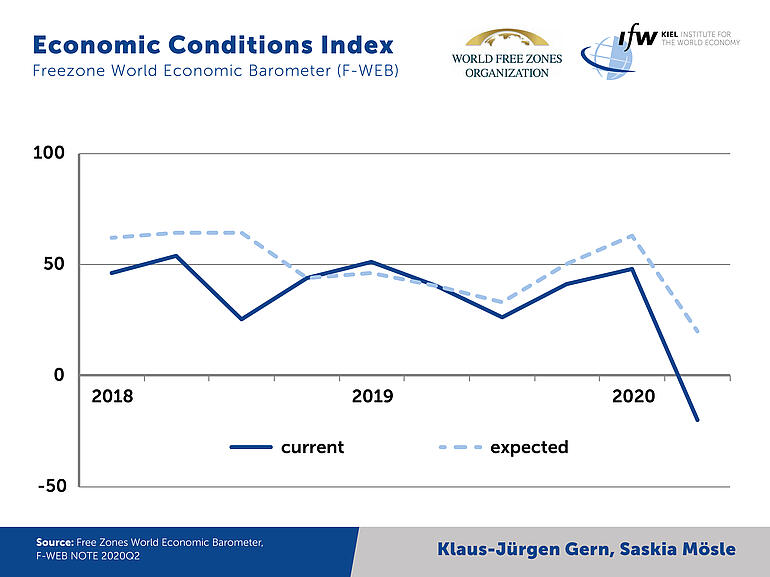News
COVID-19 crisis hits growth engine of emerging economies hard

"As a result of the massive slump in world trade during the Corona crisis, an important growth engine in emerging markets has started sputtering," says Saskia Mösle, who conducts research on Special Economic Zones at the Kiel Institute Forecasting Center. Free Zones are increasingly in operation, especially in developing and emerging economies, to attract foreign direct investment, realize benefits from globalization and promote economic development. Free Zones are usually subject to preferential legal and tax rules and geared towards international trade. "Special Economic Zones are designed to promote and facilitate economic activities," Mösle continues, "at present, however, the economic situation in Free Zones is rated worse than in the host countries in general."
At the same time, the sharp decline in foreign direct investment that is currently unfolding is dampening hopes for a rapid recovery. Accordingly, the expectations index for the coming three months has also fallen by more than 40 points while remaining in positive range at +20. Cautious optimism comes primarily from Asia, where many countries were first affected by the COVID-19 pandemic but were now also the first to ease the tough lockdown measures.
These additional insights result from a number of special questions that were asked in addition to the regular F-WEB survey to shed light on the economic impact of the COVID-19 pandemic and follow up on the results of a special survey in April. Deteriorating financial conditions continue to be a major drag on activity, although many support measures have been adopted in the Free Zones, such as the deferral of rent payments, wage subsidies, and credit facilities.

Read here the latest F-WEB-Report in full length (pdf)
